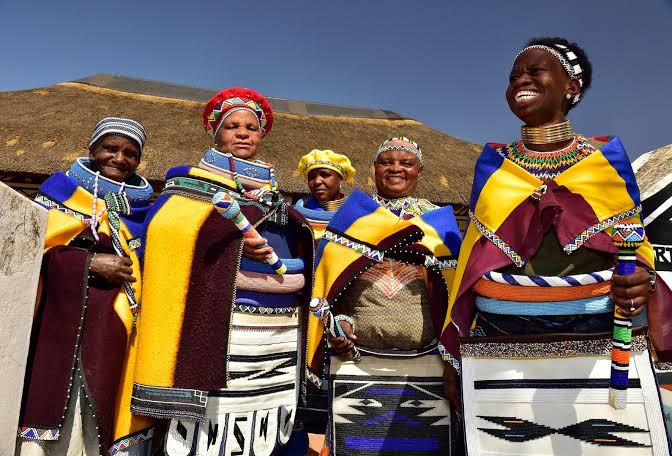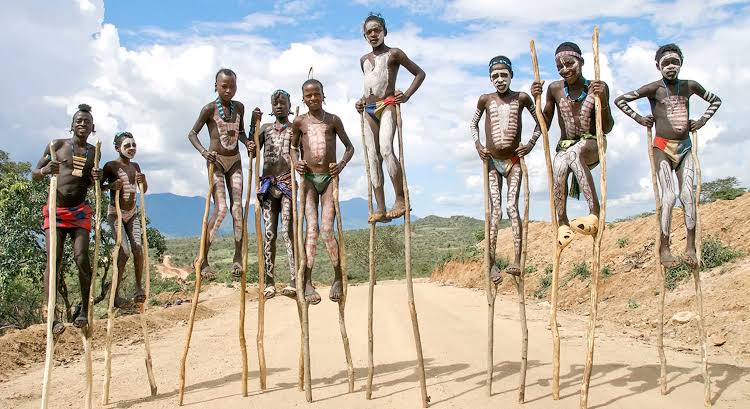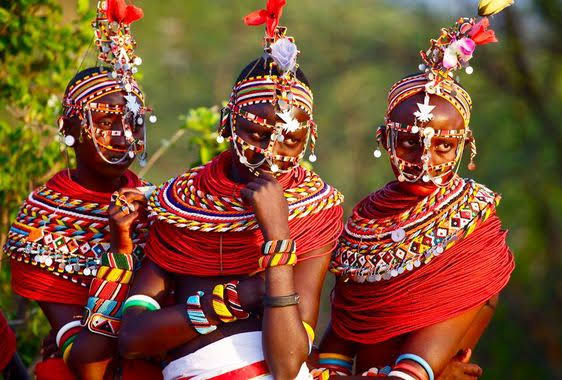Africa, a continent rich in cultural diversity, is home to a myriad of tribes, each with its unique traditions and rituals. In this immersive exploration, we delve into the incredible tribal rituals that offer a glimpse into the cultural tapestry of Africa. From rites of passage to celebrations of heritage, these rituals provide a profound understanding of the deep connections between African communities, African Tribal Rituals and their ancestral roots.

**1. **Maasai Jumping Dance: A Warrior’s Display**
Among the Maasai people of East Africa, the jumping dance is a traditional African tribal ritual performed by warriors. Accompanied by rhythmic chanting, young warriors showcase their strength and agility by jumping high into the air. This ritual is a celebration of bravery and is often performed during important ceremonies.
**2. **Bwiti Rite of Passage, Gabon: Spiritual Enlightenment**
The Bwiti ceremony in Gabon is a rite of passage where initiates consume the hallucinogenic iboga plant to attain spiritual enlightenment. This African tribal ritual is deeply rooted in the Bwiti religion and is believed to connect participants with ancestors, providing guidance and wisdom.
**3. **Hamar Bull Jumping, Ethiopia: Transition to Adulthood**
In the Hamar tribe of Ethiopia, young men partake in a bull jumping ceremony as a rite of passage to adulthood. The initiate must leap across the backs of several bulls without falling, symbolizing strength and courage. This African tribal ritual marks the transition to manhood and is accompanied by feasting and celebrations.
**4. **Dipo Ceremony, Ghana: Coming-of-Age Celebration**
The Dipo ceremony, practiced by the Krobo people in Ghana, is a significant coming-of-age ritual for young girls. The initiates undergo a series of rituals, including purification and the wearing of special beads. The ceremony symbolizes the girls’ readiness for marriage and womanhood.
**5. **Zulu Reed Dance, South Africa: Cultural Showcase**
The Zulu Reed Dance, or Umkhosi woMhlanga, is an annual ceremony in South Africa where unmarried Zulu girls present reeds to the queen. This cultural showcase celebrates femininity, encourages purity, and is an important event that draws participants from various Zulu communities.
**6. **Pokot Circumcision Ritual, Kenya: Passage to Adulthood**
Among the Pokot people in Kenya, circumcision is a crucial rite of passage for young boys. The ritual marks their transition to adulthood and is accompanied by ceremonies that emphasize bravery and endurance. It is a significant event in Pokot culture, reinforcing community bonds.
**7. **Dogon Mask Dance, Mali: Spiritual Connection**
The Dogon people of Mali engage in mask dances as part of their religious rituals. These dances are performed during ceremonies that celebrate agricultural cycles, mourn the dead, or seek spiritual guidance. The intricate masks worn by performers symbolize spiritual entities and ancestral connections.

**8. **San Healing Dance, Namibia: Rituals of Healing**
The San people of Namibia engage in healing dances as part of their spiritual and medicinal practices. These dances are believed to facilitate communication with the spirit world and promote healing. The San use rhythmic movements and music to connect with ancestral energies.
**9. **Yoruba Gelede Mask Ceremony, Nigeria: Honoring Women**
The Gelede mask ceremony among the Yoruba people in Nigeria is a vibrant performance that honors women and their role in society. Performers wear elaborate masks and costumes, depicting various characters. The ritual is a blend of art, dance, and social commentary, celebrating the power of women.
**10. **Himba Fire-Starting Ritual, Namibia: Communal Tradition**
The Himba people of Namibia engage in a communal fire-starting ritual that symbolizes unity and community spirit. Members of the tribe come together to create fire using traditional methods, fostering a sense of togetherness and shared responsibility.

Nurturing Cultural Understanding
These incredible African tribal rituals offer a profound insight into the rich cultural heritage of the continent. From rites of passage that mark important life transitions to celebrations that honor ancestral spirits, these rituals weave a vibrant tapestry of tradition and meaning. Nurturing an understanding of these cultural practices allows us to appreciate the diversity that defines Africa’s unique and fascinating tribal communities.
